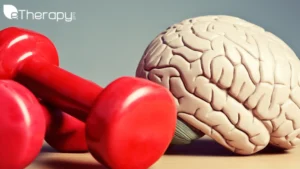
In our quest for holistic well-being, physical activity stands out as a critical component. Exercise is universally acknowledged for its array of physical benefits, ranging from enhancing cardiovascular health and building muscular strength to managing weight and reducing the risk of chronic diseases. But the potential benefits of exercise extend far beyond the physical realm. As our understanding of mental health deepens, we’ve come to recognize that exercise can serve as a potent tool for supporting mental wellness. This article delves into the profound ways exercise influences mental health, its potential as a natural preventive and therapeutic strategy, and practical tips on leveraging physical activity for improved mental well-being.
The Science Behind Exercise and Mental Health
Before we delve into specific mental health benefits and strategies for integrating exercise into daily life, it’s crucial to understand the scientific connection between exercise and mental health. Decades of research have provided fascinating insights into the biochemical and physiological changes triggered by physical activity that promote mental well-being.
The Biochemical Impact of Exercise
Exercise sparks a complex biochemical response in our bodies, leading to a cascade of positive effects on mental health. For example, physical activity promotes the release of endorphins—neurochemicals that act as natural mood lifters and painkillers. These ‘feel-good’ hormones foster a sense of well-being and happiness.
Exercise and Improved Brain Health
Beyond endorphin release, exercise stimulates the production of several other neurochemicals that promote brain health. It enhances brain plasticity, encourages the growth of new neural connections, and can even contribute to the development of new brain cells, a process called neurogenesis.
Movement is a medicine for creating change in a person’s physical, emotional and mental states. – Carol Welch
Exercise Versus Medication: A Comparative Perspective
In the context of mental health management, it’s crucial to evaluate where exercise stands in comparison to medication. Both have their place in the mental health toolkit, but understanding their relative advantages and limitations can provide a clearer picture of how to utilize them effectively.
Weighing the Benefits
Several studies suggest that regular physical activity can be as effective as antidepressants for mild to moderate depression. However, unlike medication, exercise is largely free of side-effects, doesn’t require a prescription, and yields additional physical benefits.
Embracing Exercise as a First-Line Approach
Given the potential mental health benefits of exercise, and its comparative advantages over medication, it’s worth exploring how we can embrace physical activity as a first-line approach to mental wellness. Whether you’re facing mental health challenges or simply looking to bolster your mental resilience, exercise can play a pivotal role.
Making a Start
Incorporating regular physical activity into your routine doesn’t have to be daunting. It’s about starting where you are and gradually building up as your fitness level improves. Even simple activities, like a daily walk, can be a powerful first step toward improved mental health.
The Journey: Anticipating and Overcoming Setbacks
Embarking on a regular exercise regimen can be a challenge, particularly if you’re battling mental health issues. Recognizing potential obstacles and understanding how to navigate them can set you up for long-term success.
Navigating the Path
Setbacks are a part of any behavior change process. Rather than viewing them as failures, it’s more helpful to see them as temporary roadblocks on your journey to improved mental health. It’s not about how many times you fall, but how many times you get back up.
Recognizing When to Seek Professional Help
While exercise is a powerful tool for bolstering mental health, it’s not a cure-all. Sometimes, professional help is necessary, especially for those dealing with severe mental health issues. It’s crucial to recognize when symptoms persist or worsen despite your efforts. In such cases, reaching out to a mental health professional can be the next appropriate step. Resources such as eTherapyPro can provide the needed support, offering a secure, confidential space for counseling. Always remember, there’s no shame in seeking help, and professional therapy is a crucial aspect of holistic mental health care.
Identifying the Need
Despite the powerful mental health benefits of regular physical activity, it’s crucial to understand that exercise is not a substitute for professional mental health care, especially for severe mental health disorders. If you find your symptoms persist or worsen, despite incorporating regular exercise into your routine, it’s essential to seek help from mental health professionals.
Practical Steps: Making Exercise a Part of Your Routine
Recognizing the benefits of exercise for mental health is just the first step. The next—and often more challenging step—is incorporating regular physical activity into your daily life. This can feel daunting, particularly if you’re starting from scratch, but remember that small, incremental changes often lead to sustainable lifestyle shifts.
Setting Realistic and Achievable Goals
Start with small, achievable goals, such as a 10-minute walk each day or a few minutes of stretching every morning. As these activities become a part of your routine, you can gradually increase the duration or intensity.
A year from now you may wish you had started today. ― Karen Lamb
Find Activities You Enjoy
Exercise doesn’t have to be a chore. You’re more likely to stick with your exercise routine if you enjoy the activities. Whether it’s dancing, biking, yoga, or team sports, find something that you love and look forward to.
Building Resilience: Navigating Setbacks on Your Exercise Journey
Even with the best of intentions and planning, there will likely be bumps along the road. Anticipating these and having a plan for how to respond can make all the difference.
Cultivating a Growth Mindset
When faced with a setback, it’s helpful to cultivate a growth mindset. This means viewing challenges as opportunities for learning and growth, rather than as insurmountable obstacles.
Progress is rarely a straight line. There are always bumps in the road, but you can make the choice to keep looking ahead. – Kara Goucher
Re-evaluating Your Goals
If you’re consistently finding it difficult to meet your exercise goals, it might be a signal that they’re too ambitious. Remember, it’s okay to start small and gradually work your way up.
Conclusion: Embracing the Power of Exercise for Mental Health
Exercise is more than a tool for physical health—it’s a key to mental well-being. Its power to enhance mood, ease anxiety, and promote overall mental wellness is profound. Embracing regular physical activity as a first-line approach to mental health is a step towards a healthier, happier life. No matter where you are on your mental health journey, remember that it’s never too late to start. And in this journey, every step, no matter how small, counts. Remember, progress is not linear, and it’s okay to have ups and downs. Keep moving forward, and celebrate every victory along the way.





